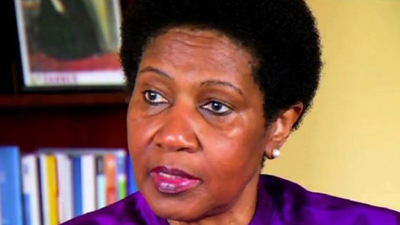The Executive Director of UNWOMEN says placing women at the centre of policy outcomes in South Africa – among them radical economic transformation, land expropriation, universal access to water and the mining charter – would be both radical and revolutionary.
Phumzile Mlambo-Ngcuka was speaking ahead of International Women’s Day on Thursday.
The UN will mark the day with an official commemoration under the theme: Time is Now, Rural and Urban Activists Transforming Women’s Lives.
It is a busy time at UNWOMEN’s headquarters in Manhattan. Just days ahead of the opening of the annual Commission on the Status of Women next week with final touches being made to the programme for one of the agency’s flagship events.
“We choose the theme which combines the support and the empowerment of rural women and activism which may be anywhere in the world, maybe in the urban areas. But the link we are making is to ensure that wherever we take critical action; whether you are in Hollywood or you are in Johannesburg or you are in Dubai, you have to think about the impact that you can make on those that are left behind – rural women being a critical constituency that is at risk of being left behind,” Mlambo-Ngcuka said.
Thursday’s event brings together rural women working in the field and some of the Hollywood’s A-listers including Oscar winner Reece Witherspoon and Zimbabwean-American Black Panther star Danai Gurira as UNWOMEN seeks greater solidarity to empower rural women who are being left behind.
“This can’t be Hollywood for Hollywood. Metoo, TimesUp has to be about how we change things for women everywhere. It has to be an-injury-to-one-is-an-injury-to-all approach and therefore, we are bringing rural women and the issues that they bring with them into the centre stage,” says Mlambo-Ngcuka.
UNWOMEN released a report examining the gaps in implementing the Sustainable Developments Goals as the World Bank warns that at the current pace, it will take 100 years to achieve equality between men and women. We pressed her for examples on what some countries can do immediately.
“Countries can work in a coordinated way to target the areas that need attention most. For instance, countries pass laws. We still have countries; 49 countries that do not have legislation that criminalizes rape and having sexual relations with a minor. In fact, if you marry a minor that has been your rape victim you are forgiven for the crime. Now, that is a problem and we are addressing that and we cannot do that alone; we need member states to be partners to address that.”
Mlambo-Ngcuka believes the women’s empowerment offers South Africa’s transformative agenda a unique opportunity.
“If we are going to be going the radical transformation (route) as well as land reform in a drastic and a radical way, women, young people need to be in front because that would equal real radical transformation. In reviewing the mining charter, learning from the mistakes of the past, knowing that the mining industry is a rural industry because mining happens in the rural areas, this is a significant opportunity also to support economic empowerment. So, yes, we have challenges, but these are opportunities that we have through these new and contemporary policies that we are dealing with. And of course dealing with the economic impact on women, the question of economic equality for women will have a further impact in realization of all the other SDGs not so. The participation of women in economies is one missing link. It’s one missing driver for inclusive and sustainable growth.”


